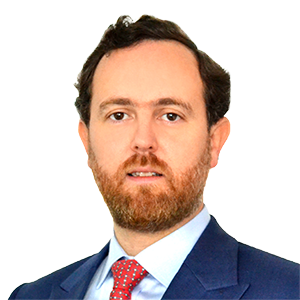This article was first published in IFN Volume 21 Issue 19 dated the 8th May 2024.
According to the General Council for Islamic Banks and Financial Institutions, the global Islamic funds market has grown by more than 300 per cent over the past decade. The countries of the Gulf Co-operation Council (GCC) and Malaysia are at the forefront of this growth, with the Kingdom of Saudi Arabia (the KSA) and the United Arab Emirates (the UAE) as the major actors in the GCC region for the establishment of fund vehicles with Shari’ah-compliant assets.
In this context, multiple asset management firms are now launching, or planning to launch, Islamic funds as either stand-alone products or as part of a broader investment strategy to complement existing approaches and investors.
The global financial landscape offers a myriad of fund types tailored to meet the diverse needs of investors and asset managers when setting up a Shari’ah-compliant fund vehicle. Particularly, the KSA, the Onshore UAE, the Dubai International Financial Centre and the Abu Dhabi Global Market serve as key jurisdictions for fund formation and management in the GCC. A wide range of fund structures are able to be established and addressed to either public investors or professional investors, as further summarised in the table below:
| Comparison table of funds |
| Jurisdictions |
KSA |
KSA |
Onshore UAE, ADGM and DIFC |
Onshore UAE, ADGM and DIFC |
Onshore UAE, ADGM and DIFC |
| Types of Fund |
Public Funds |
Private Funds |
Public Funds |
Exempt Funds |
Qualified Investor Funds |
| Practical Use |
Regulated vehicle |
Regulated vehicle |
Regulated vehicle |
Unregulated (but subject to prior notification to the authority before being established) |
Unregulated (but subject to prior notification to the authority before being established) |
| Investors and Offer |
Unitholders include Retail Clients; or
Some or all of its units are offered to investors by way of public offering
|
Only Sophisticated Investors or investors whose investment is not less than SAR 1,000,000; and
Units are offered to persons only by way of a Private Placement |
Unitholders include Retail Clients; or
Some or all of its units are offered to investors by way of public offering
|
Only Professional Clients; and
Units are offered to persons only by way of a Private Placement
|
Only Professional Clients; and
Units are offered to persons only by way of a Private Placement
|
| Minimum subscription |
N/A |
Usually SAR 1,000,000 |
N/A |
US $50,000 |
US $500,000 |
| Corporate type |
Contractual entity formed between the fund manager and its investors |
Contractual entity formed between the fund manager and its investors |
Investment company
(including umbrella structure) |
GP/LP
Investment company
(including umbrella structure) |
GP/LP
Investment company
(including umbrella structure) |
| Liquidity |
Liquid |
Usually illiquid |
Liquid |
Usually illiquid |
Usually illiquid |
| Management entity |
Regulated Fund Manager |
Regulated Fund Manager |
Regulated Fund Manager |
Regulated Fund Manager |
Regulated Fund Manager |
The GCC’s increasing and dynamic economies, characterized by their strategic location and robust infrastructure, have positioned them as key players in the development of Shari’ah-compliant products in the global funds market. A wide palette of Shari’ah-compliant products currently exists, which enables large Islamic funds actors to (i) duly diversify their investments or (ii) benefit from the different varieties of Shari’ah-compliant products to set up a specialised investment vehicle. That being said, money market funds, equity and Islamic bonds (Sukuk) remain the dominant investment products in recent years.
The Islamic asset management industry is, however, not isolated to Islamic jurisdictions. As Islamic finance continues to expand its footprint worldwide, a number of other jurisdictions have emerged for Shari’ah-compliant investments. Among other jurisdictions, Luxembourg has become a particularly attractive hub in Europe by leveraging its robust financial infrastructure and regulatory framework to accommodate the evolving needs of investors adhering to Islamic principles.
Despite operating in different jurisdictions, fund structures share general common characteristics and objectives, which make them an attractive investment option while bringing comfort to investors. These include (i) investor protection and transparency with comprehensive disclosure documents, periodic reporting, and risk management frameworks to ensure accountability and integrity in the investment process, and (ii) a regulated environment with investment vehicles that might be a regulated entity, while being managed by regulated fund managers.
To conclude, the investment fund sector has seen a major increase in Shari’ah-compliant investment funds in recent years, not only in the GCC region but worldwide. This appetite to invest in Shari’ah-compliant funds will continue to make headway as the region’s economic development grows and due to the increased interest from investors to invest in ethical products. As the market evolves, we are likely to see a growth of Shari’ah-compliant funds in (i) Islamic jurisdictions such as the GCC countries, with the KSA and the UAE as major players, as well as (ii) other non-Islamic jurisdictions with robust and appropriate regulatory frameworks, such as Luxembourg and other offshore countries.




